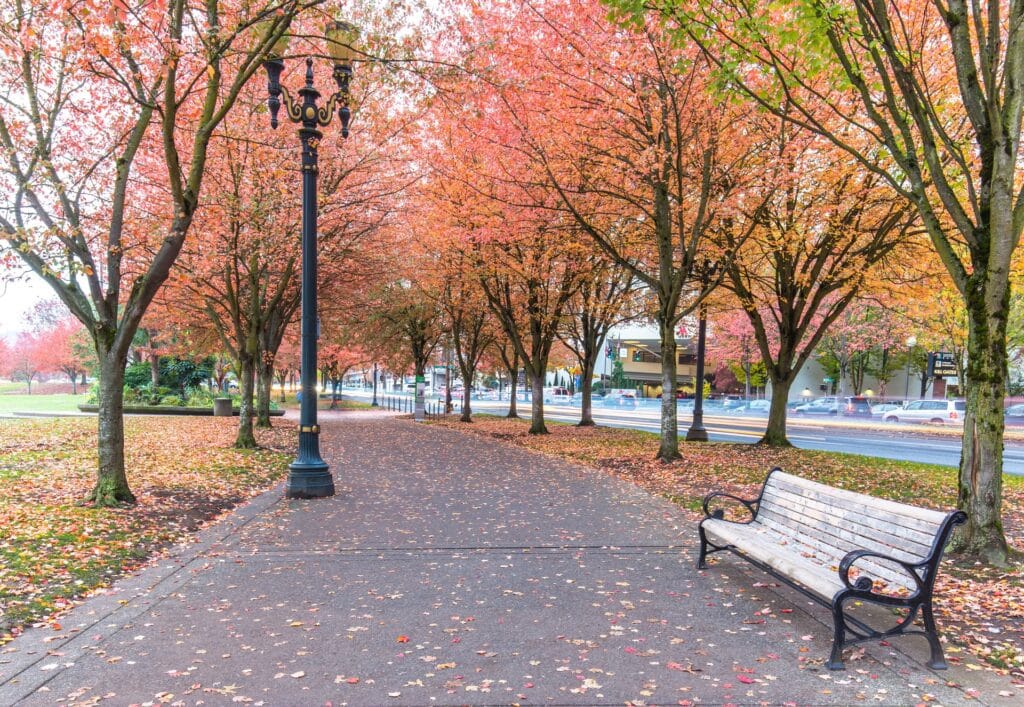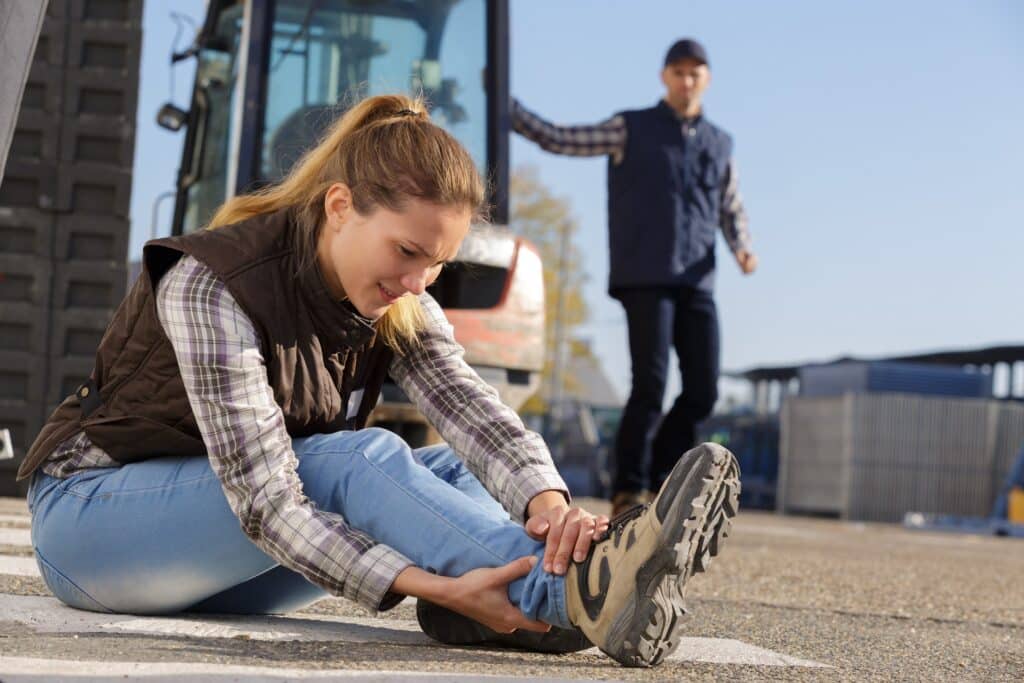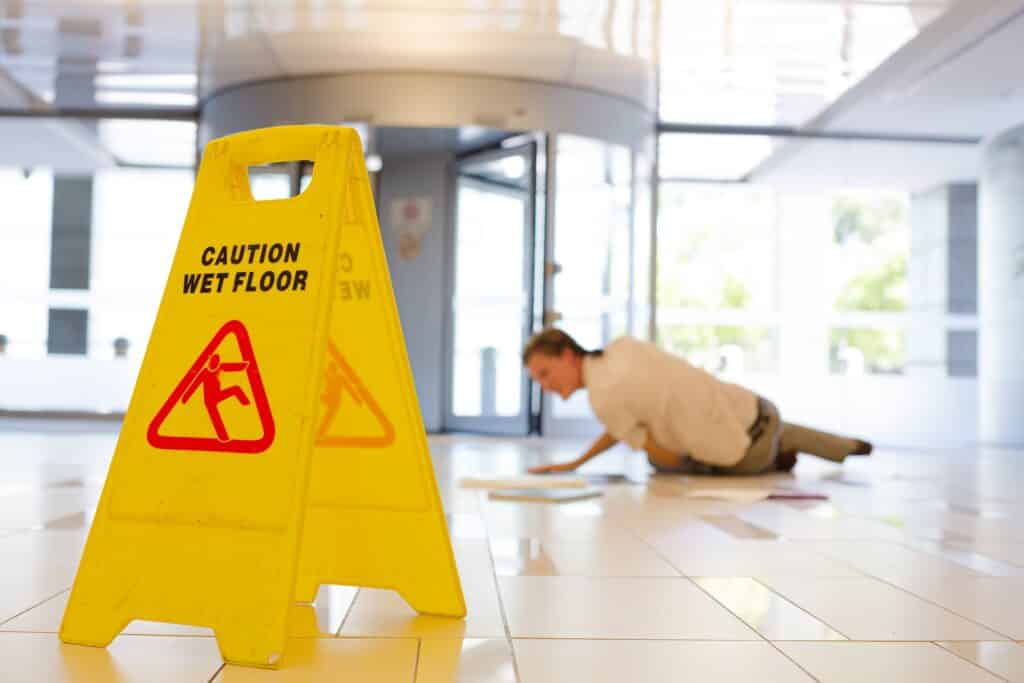Dealing with a slip and fall accident in Oregon can be a complex ordeal. However, understanding a few key concepts can help you figure out if you can claim compensation for any injuries you might have suffered.
It often boils down to whether the owner of the property where the accident occurred is at fault. If so, they’ll be held responsible for any financial damages they inflicted on the victim. However, proving fault isn’t a straightforward process, and it involves several factors to make it legally binding. Speaking with an experienced slip and fall attorney or personal injury lawyer from Zbinden & Curtis can be incredibly helpful in navigating your case. We can help you prove your slip and fall accident claim in a court of law, so you receive the compensation settlement you deserve.
If you’ve been injured in a slip and fall accident in the Portland area, call the personal injury lawyers known for their compassion and dedication. Call Zbinden & Curtis Attorneys At Law today.
Understanding Who Is Responsible
If a property owner is responsible for a slip and fall accident, you’ll first need to establish that they had a duty to ensure their property was safe. This duty varies depending on who the visitor is. Invitees, such as customers in a store, are owed the highest level of care. This means the property owner should actively work to ensure their safety. Licensees, such as social guests, should also expect a reasonable level of protection. Guests at a neighborhood BBQ is an example. These people should be kept reasonably safe during their social visit, which often means responsibly handling the fuels for the grill and warning people about potential tripping hazards.
Trespassers generally have the fewest rights to care on a property. The owner is not required to share information with them about hazards on the property or ensure their safety in any way. In fact, the only duty an owner has to trespassers is to not personally harm them unprovoked, but there are special laws for situations when the trespassers are children.
To prove that a property owner was responsible, you need to demonstrate that they were aware of a potential danger or should have been aware because the threat was obvious. You must also prove that they had sufficient time to fix the danger before the accident happened, but they did not concern themselves with the task. For example, if a grocery store was aware of a spill in the aisles and did nothing to fix or warn people about it, the incident could be seen as failing to fulfill their responsibility and duty of care.
What Does Failing to Fulfill a Duty of Care Look Like?
A property owner fails to fulfill their duty when they do not take reasonable steps to ensure their property is safe. This failure is known as a breach of duty. Examples include not warning people of a loose floorboard in a home or ignoring a broken staircase light in the workplace. Both of these situations can cause an accident regardless of the victim’s actions. Proving a breach of duty involves collecting photos of the hazard, statements from witnesses, or official reports documenting when and how the property owner was made aware of the danger.
Linking the Breach of Duty to the Accident
One of the most important parts is connecting the breach of duty directly to your accident. This means proving that your injuries were a direct result of the unsafe condition caused by the property owner’s negligence. For instance, if you tripped over that loose floorboard and broke your wrist, you need to clearly show how the fall was caused by the owner ignoring the repair.
Documenting the Consequences
It’s also incredibly important to fully detail how the accident has impacted your life. This includes all physical, financial, and emotional effects. You should gather detailed evidence such as medical records, receipts for any medical treatments, documentation of the work you missed while you recovered, and personal statements describing how the injuries have affected your daily activities and overall well-being. This part boils down to negotiating (and sometimes arguing) for the rights and compensation you deserve. An experienced personal injury lawyer or slip and fall attorney from Zbinden & Curtis Attorneys At Law can assist with this process until justice is served.
Proving Your Slip and Fall Accident Claim in Oregon
Proving your claim in a slip and fall incident requires more than just explaining what happened. You need to establish responsibility, show how it was breached, link that breach directly to your accident, and detail the full extent of the consequences you’ve suffered. This might seem overwhelming, but the right legal guidance can streamline these steps and significantly improve your chances of receiving the compensation you deserve.
When a slip and fall accident happens in Oregon, the courts and insurance companies will attempt to distribute blame on each party involved. If you and the property owner are both found to be 50% responsible, neither side can claim compensation from the other for the financial damages. That’s why it’s so important to prove the owner’s fault and reduce the percentage of fault they could place on you. An experienced slip and fall attorney can guide you through this process, and Zbinden & Curtis Attorneys at Law have helped Portland accident victims for decades.
Why Having an Experienced Personal Injury Lawyer Matters
With all the legal complexities involved in proving a slip and fall accident claim, having a knowledgeable lawyer is the best thing you can do to improve your chances of receiving compensation. We can help you gather all necessary evidence, from medical records to maintenance records, and can even consult experts to reconstruct the accident scene if needed.
Our slip and fall attorneys at Zbinden & Curtis have practical knowledge of Oregon personal injury cases. We know the evidence that works best in court as well as the most effective strategies to use in negotiations. We can make sure that everything is managed with the utmost care and professionalism so you can recover from the accident with confidence and support. Call our Portland office today at (503) 287-5000.
 Skip to content
Skip to content









